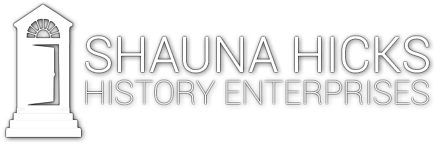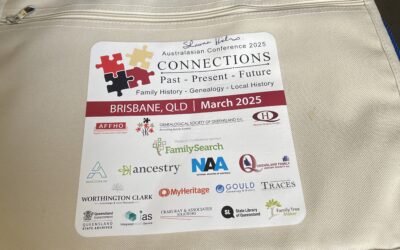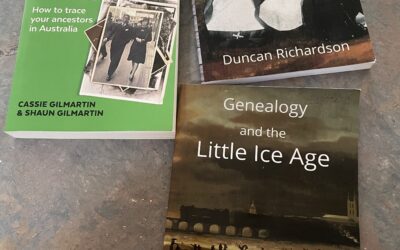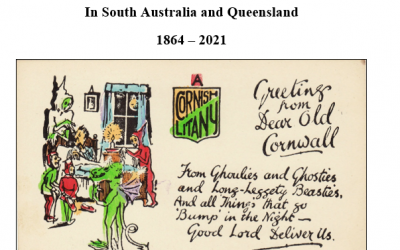This is a continuation of my last blog What Are You Reading For Genealogy? Government publications might seem a strange choice and some might think my working in government for 35 years has coloured my choice of reading material, especially for genealogy. But I hope to show in this blog that you can discover new tips and information by looking at annual reports published by archives.
The 2009-10 annual report of the National Archives of Australia is a hefty volume with 180 pages but only a small percentage is of real interest to the genealogist and family historian so you can actually read the reports for quite a few archives in a relatively short space of time.
I always read the Director-General’s Review of the year as this gives all the highlights and alerts you to what to look for in the rest of the report. For example, it mentions the Archives use of Web 2.0 and the publication of images to Flickr and videos in Vimeo as well as their Facebook page. If you weren’t aware of their presence in these social media, you could go and have a look.
Another area of genealogy interest is the digitisation program and their priority areas of immigration and defence, of great interest to genealogists and family historians which is provided free of charge to users. The year also saw the release of a new enhanced version of RecordSearch, the Archives’ online catalogue. If it is sometime since you last used the catalogue, you should check it out.
Under Challenges we learn about the closing of State offices in Adelaide, Darwin and Hobart and the revised decision to co-locate with other institutions in those areas. Another challenge is the introduction of the Freedom of Information Amendment (Reform) Act of 2010 which will eventually see access reduced from 30 years to 20 years over a ten year period. Exciting news for all researchers and if you hadn’t heard about it from other sources, this would be one reason to read the annual report.
The main areas of the Annual Report of interest to me are the sections relating to access and I was surprised to read that 93% of the Archives users access records through digitised images on the website (p36). This statistic makes me ask the question – what about all the other relevant records not yet digitised that researchers are missing out on?
As well as what is already in custody, you can learn what has been transferred in during the year and this is partly listed in detail in Appendix C – Selected Records Transferred and Described. For example, under Collector of Customs is correspondence series SP42/1 which includes applications for passports, certificates of exemption, entry permits, repatriation and certificates of naturalisation mostly relating to Chinese nationals and covering the period 1901-1948. Obviously of interest to anyone with Chinese ancestry or research interests.
Appendix F is the Publications Programs and this is a good place to find out what new Fact Sheets have been published during the year as well as more substantial guides and publications.
Like all annual reports there are oodles of statistics and RecordSearch now contains more than 22 million pages of digital records while PhotoSearch, a module of RecordSearch, contains descriptions and images of over 5 million photographs which are also available through the Picture Australia portal site. The passenger arrivals index has 879,000 names of passengers arriving by ship, or passing through Fremantle on the way to the eastern States, between 1921 and 1950. The index also records information about arrivals at Perth airport between 1944 and 1950 (p 37).
These few snippets from just one archives’ annual report demonstrates the value of at least having a browse through annual reports of archives which hold records relating to your own family research. New indexes, new digitisation projects, more detailed item descriptions and so on are all making it easier for researchers to find information in the archives and you can get an overview of this activity once a year in the annual reports.
For information throughout the year, subscribe to the free e-newsletters that most archives publish usually on a monthly basis. The key thing to remember is that only a very small percentage of what is available is online, so use the catalogues and other finding aids to find original records that may be even more important to your research than the popular series being digitised first. Make 2011 your year to discover archives both online and in person! Don’t forget to share your success stories – success inspires us all.





I hope to get more original letters from the early 20th century a) deciphered from ancient German script; then b) I translate them to English to learn what my grandparents family and friends wrote them 100 years ago!